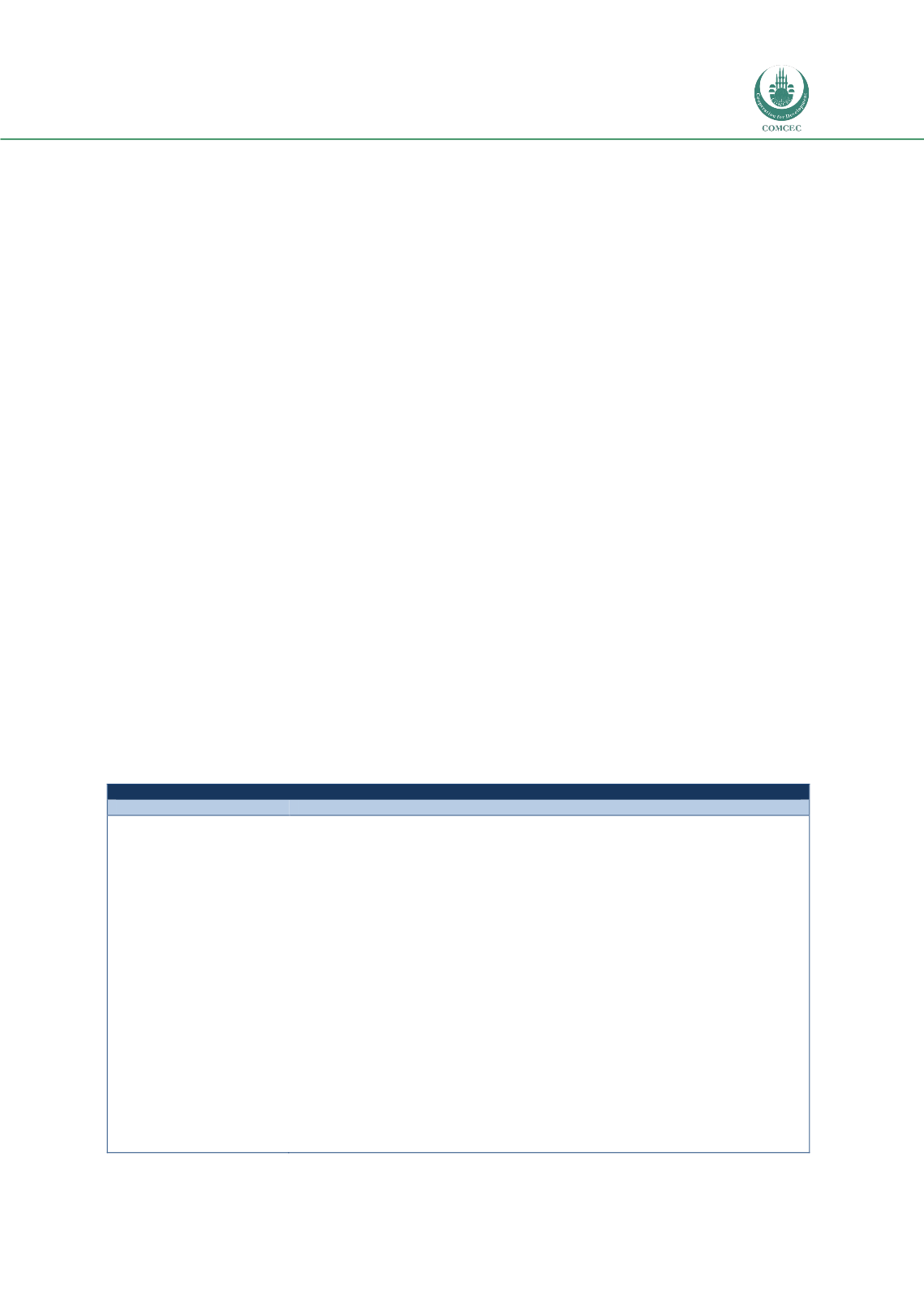

Improving Agricultural Statistics in the COMCEC Region
137
3.9
General SWOT Analysis and Needs Assessment
A general SWOT analysis is performed and presented for each of the case studies. The aim of
this analysis is to provide COMCEC with an analytical framework that:
Establishes a general context through the national contexts of selected countries of
COMCEC for agricultural statistics
Identifies and articulates common as well as conflicting potential threats
Identifies and articulates common as well a unique weak points
Identifies and articulates common and conflicting strong points
Identifies and articulates common as well as unique opportunities
The general SWOT analysis serves to:
Inform policy and decision-makers at the executive levels of COMCEC Members to
engage more effectively with the relevant stakeholders and interested parties in terms
of policy and planning for interventions to improve the production of agricultural
statistics in COMCEC Member Countries.
Provide a contextual backdrop for guidance to duly authorized interested parties in
assessing and evaluating the current situation within the context of agricultural
statistics in COMCEC Member Countries.
Provide a basis for future re-assessments and evaluations of agricultural statistics in
COMCEC Member Countries.
For the purpose of the SWOT analysis, four key elements in accordance with IASD –
Organization, Resources, Methodology, and Availability/Timeliness/Output - were defined
specifically taking into account the production of agricultural statistics in COMCEC Member
Countries. This correspondence also helps the reader to understand how IASD findings are in
line with SWOT findings.
Table 75: General SWOT Analysis
THREATS
Definition
Criteria
A circumstance, condition or
event that has a potential to
cause unavailability of
agricultural statistics or
available but obsolete
agricultural statistics
-
Organization
o
Unstable political situation,
o
Political pressure on statistics,
o
Weak coordination among statistical producers,
o
Unclear roles of statistical producers,
o
Weak coordination between producers and users.
-
Resources
o
Budget cuts & long term budget instability,
o
Low funding from international donors,
o
Budgetary needs for IT investments,
o
Retirement and non-replacement of experienced staff.
-
Methodology
o
Size of informal sector,
o
Large number of micro-agricultural holdings
-
Output/Availability/Timeliness
o
User dissatisfaction,
o
Over user focus on other statistical areas,
o
International organization requests inconsistent with national needs
and priorities,
o
Low statistical awareness in society,
o
Weak trust on statistical information.

















